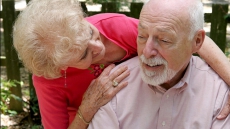For helping people with spinal cord injury walk better, researchers have made an artificial connection from the brain to the locomotion centre in the spinal cord using a computer interface as bypass.
This allowed participants to stimulate the spinal locomotion centre using volitionally-controlled muscle activity and to control walking.
Neural networks in the spinal cord, locomotion centre are capable of producing rhythmic movements such as swimming and walking, even when isolated from the brain.
The brain sends commands to the spinal locomotion centre to start, stop and change walking speed.
In most cases of spinal cord injury, the loss of this link from the brain to the locomotion centre causes problems with walking.
"We hope this technology would compensate for the interrupted pathways' function by sending an encoded command to the preserved spinal locomotor centre and regain volitionally-controlled walking in individuals with paraplegia," explained Yukio Nishimura, an associate professor of the Okazaki-based National Institute for Physiological Sciences (NIPS).
Since the arm movements are associated with leg movements when we walk, they used muscle activity of arm to surrogate the brain activity.
In the study, the computer interface allowed subjects to control magnetic stimulator that drive to the spinal locomotion centre using volitionally-controlled muscle activity and to control walking in legs.
However, without bypassing with the computer interface the legs did not move even if the arm's muscles were volitionally activated.
The results were published online in the Journal of Neuroscience.





